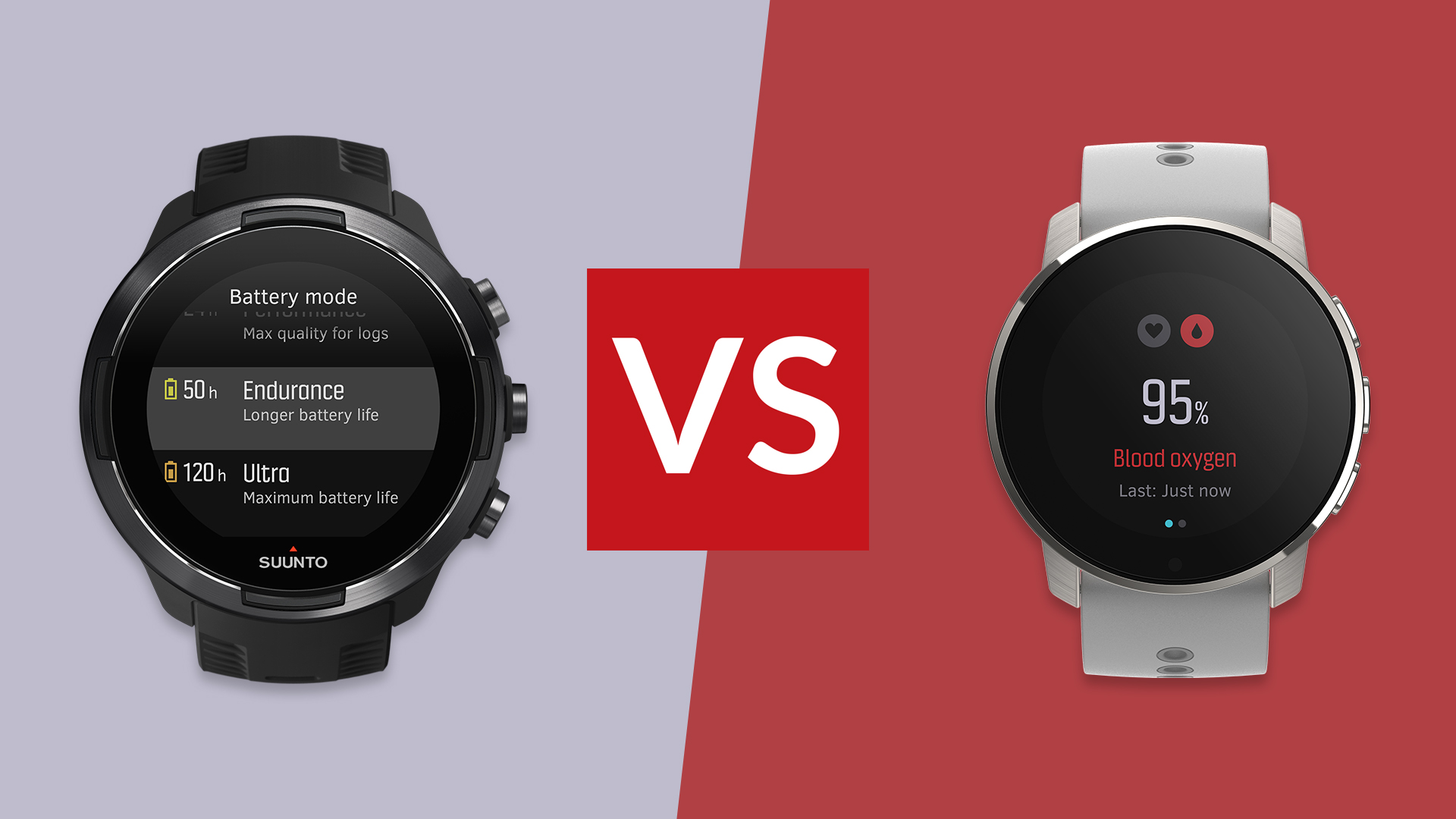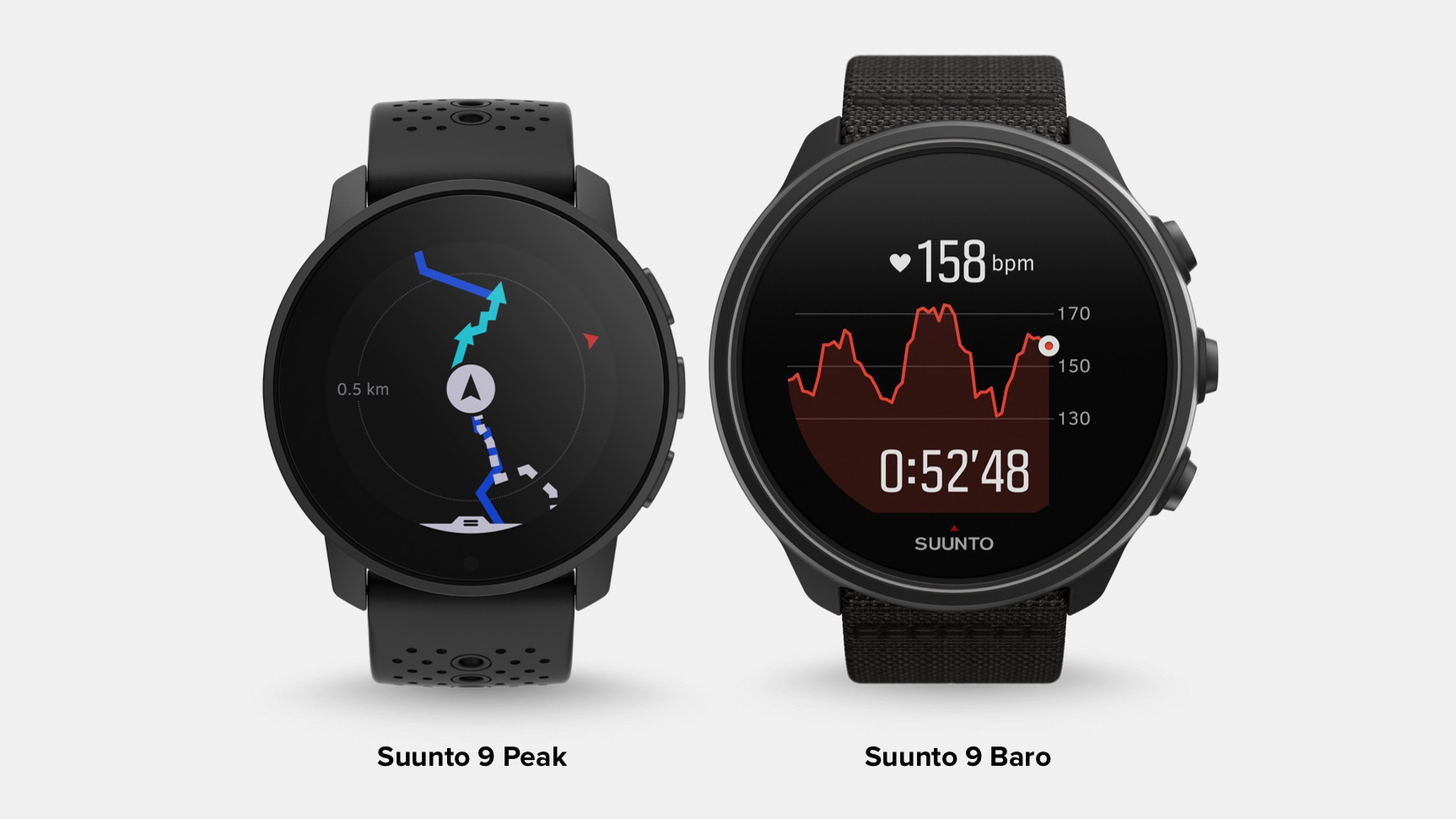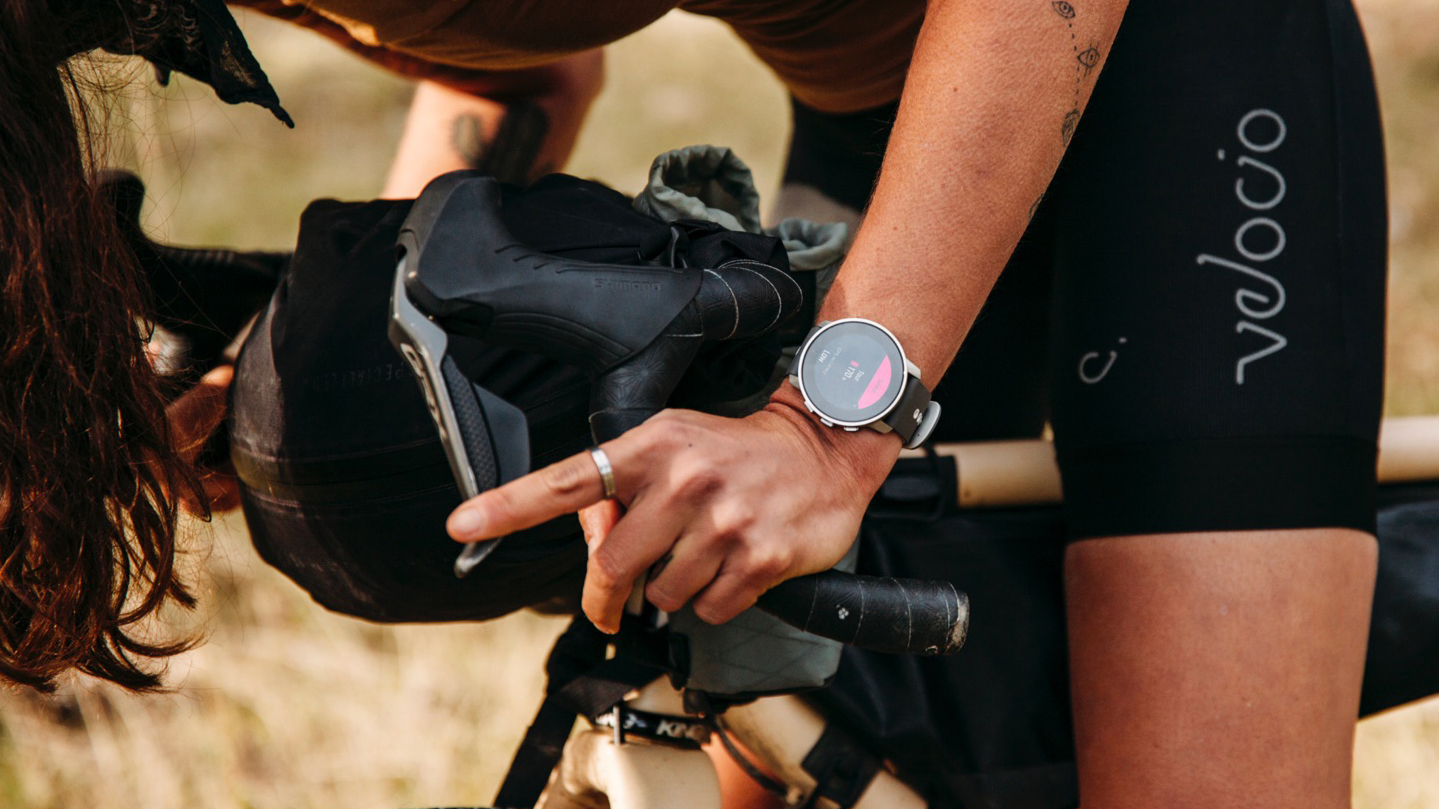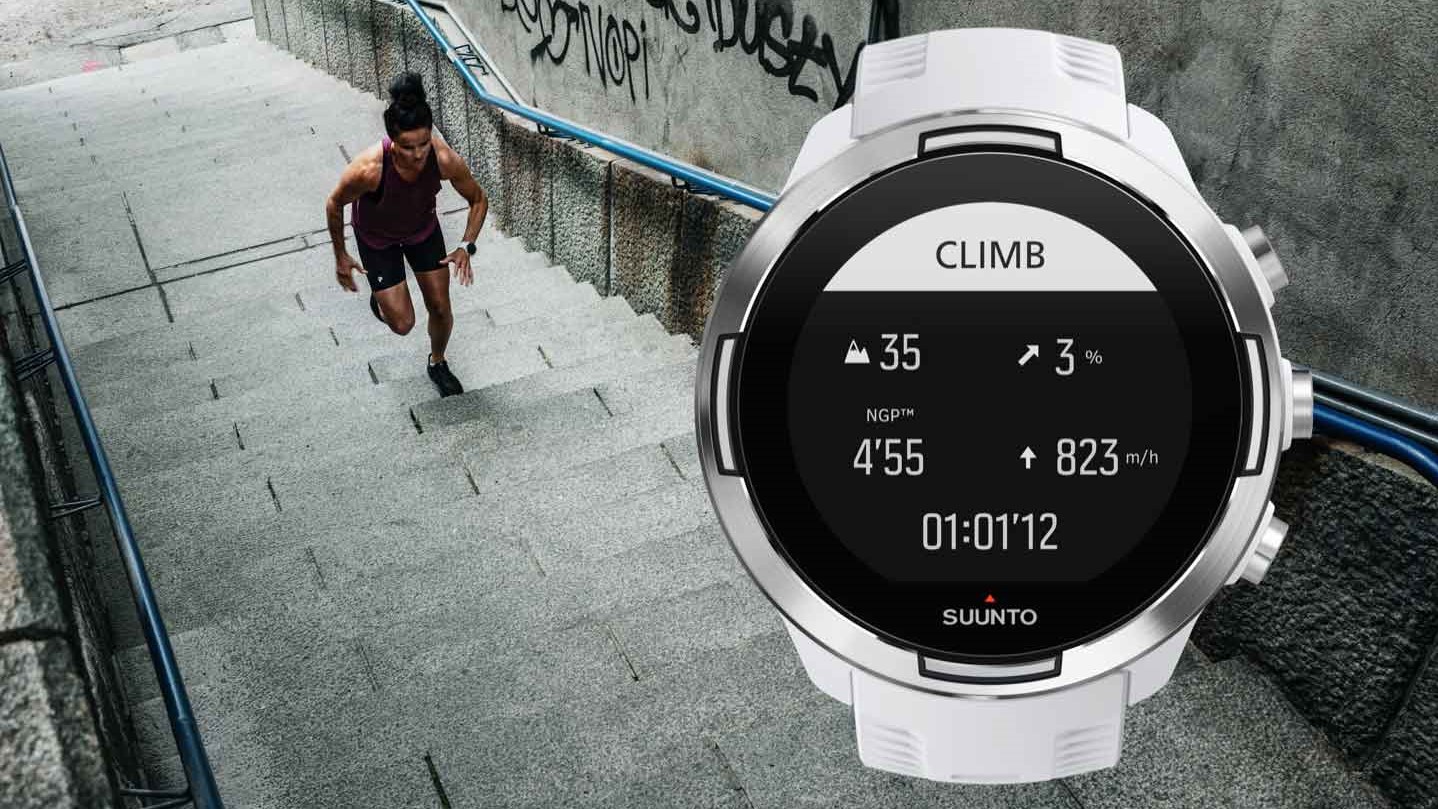

Suunto 9 Peak vs Suunto 9 Baro: which is the best Suunto watch? One might think that the newly released Suunto 9 Peak will perform better than the now 3-years-old Suunto 9 Baro in every way but interestingly enough, that's not the case. As it turns out, the 9 Baro might be a better choice for certain athletes than the 9 Peak.
Suunto has an interesting way of naming the different versions of its flagship model. At first, I thought this iterative design will only go on until the company releases the successor of the Suunto 9 but as it turned out, Suunto is quite happy keeping the name and the process as it is.
Case in point, the Suunto 9 Baro Titanium is a very different watch from the Suunto 9 and also the Suunto 9 Peak. These outdoor watches are similar only in a sense how all Garmin Forerunners are similar: they share some common features but you'd never think the Garmin Forerunner 945 is the same watch as the Garmin Forerunner 245.
Let's find out how the Suunto 9 Peak vs Suunto 9 Baro differ and most importantly, which one should you buy if you're looking to upgrade your running watch for a Suunto.
But first, have a look at our comparison of Suunto and Garmin here: Suunto vs Garmin.
Suunto 9 Peak vs Suunto 9 Baro: price and availability
The Suunto 9 Baro is available now at Suunto US, Suunto UK and Suunto AUS, prices from $499/£439/AU$749.
The Suunto 9 Peak is available now at Suunto US and Suunto UK, prices from $569/£519. Suunto says that the 9 Peak is "coming soon to Australia" but there is no date confirmed just yet.
Sign up to the T3 newsletter for smarter living straight to your inbox
Get all the latest news, reviews, deals and buying guides on gorgeous tech, home and active products from the T3 experts

Suunto 9 Peak vs Suunto 9 Baro: main differences
The Suunto 9 Peak is the latest iteration of Suunto's flagship watch and also the thinnest, smallest, and toughest" watch to date from the Finnish brand. Finally, the 9 Teak can be updated 'over the air', meaning you don't have to plug the watch into the computer to update its software. Plus it has a blood oxygen saturation sensor that tracks just that during sleep.
The newer iteration is slimmer and lighter than the 9 Baro, although the display resolution is less impressive (but in line with other watches in the same category). The Suunto 9 Peak weighs almost 40% less than the 9 Baro (62g and 81g, respectively). The resolution went from 320 x 300 pixels on the 9 Baro to 240 x 240 on the 9 Peak. Both watches have led displays but the 9 Peak can adjust the brightness automatically.
There are a couple of navigation features found in the 9 Baro that are absent on the 9 Peak, for example bearing navigation you can use outdoors to follow the target path for a location you see or have looked at from map ahead. You can use this feature stand alone as a compass or together with a paper map.
The Suunto 9 Peak can record heart rate under water, unlike the 9 Baro that requires a Suunto Smart Heart Rate Belt and Suunto Smart Sensor.
Suunto 9 Peak vs Suunto 9 Baro: design
The Suunto 9 Peak is a much sleeker watch compared to the 9 Baro although the newer watch kept the button layout and the interface relatively unchanged. The 9 Peak features a smaller watch case and watch face but added stainless steel bezel to the mix. The slimmer watch also comes with a narrower strap (22 mm, compared to the 9 Baro's 24 mm).
Given the size difference, the Suunto 9 Baro is better suited for people with larger wrists. In layman's terms, the Suunto 9 Peak looks more of a fitness watch such and takes after the Suunto Baro 9 Titanium more than the original (rather bulky) Suunto 9.

Suunto 9 Peak vs Suunto 9 Baro: battery life
Battery life is the same on both watches which is impressive from the Peak 9's point of view as it's much smaller and lighter than the 9 Baro. Both the 9 Peak and the 9 Baro will last for around one week on a single charge while GPS battery life is around 25 hours. This GPS battery life can be extended to up to 170 hours (in 'Tour' mode) but in this case, most sensors are either turned off or reduced to collect data in every hour or so, making this feature only useful for ultra athletes. Both watches feature 'Intelligent charge reminders' which is based on your activity history. Neat!
Suunto 9 Peak vs Suunto 9 Baro: accuracy
Top of the range Suunto watches, including the 9 Baro and the 9 Peak, use the FusedTrack algorithm that combines GPS and motion sensor data that is said to improve track and distance accuracy. In theory, this allows you to extend battery life by lowering GPS power without significantly compromising accuracy and it works but the technology is not without caveats. It's certainly better in areas where the GPS signal is a bit patchy.
The Suunto 9 range uses the Valencell heart rate sensor technology which is regarded fairly accurate for a wrist-based system. Valencell works a number big name brands in the fitness industry including Bose, Jabra, Scosche, Amazfit and more, so you can rest assured the technology is not terribly inaccurate. The involvement with Scosche is particularly interesting as the brand is primarily manufactured heart rate sensors so if the Valencell system is good enough for Scosche, it should be good enough for you too.

Suunto 9 Peak vs Suunto 9 Baro: verdict
Unless you're a large-writed endurance trail runner in need of niche navigation features, it's unlikely you'll want to choose the Suunto 9 Baro over the Suunto 9 Peak. The latter is more in line of what most people want from a multisport watch in 2021: a bunch of sport features and sensors combined with convenience features such as sleep tracking. And, of course, it's not a problem if the watch looks sleek AF too.
What amazes me most about the Suunto 9 Peak is how well it introduces new features and design all the while being completely in line with what I would expect from a top-tier Suunto watch. It offers all the best features of the 9 Baro and some more and retails for less than how much the Suunto 9 BAro used to cost when it came out.
That said, it's not cheap and the competition in this price range is fierce with watches such as the Garmin Fenix 6 Pro and Polar Vantage V2 dominating the market. Does the Suunto 9 Peak stand a chance still? Absolutely. It's a great watch, especially if you like training and racing off the beaten path.

Matt Kollat is a journalist and content creator who works for T3.com and its magazine counterpart as an Active Editor. His areas of expertise include wearables, drones, fitness equipment, nutrition and outdoor gear. He joined T3 in 2019. His byline appears in several publications, including Techradar and Fit&Well, and more. Matt also collaborated with other content creators (e.g. Garage Gym Reviews) and judged many awards, such as the European Specialist Sports Nutrition Alliance's ESSNawards. When he isn't working out, running or cycling, you'll find him roaming the countryside and trying out new podcasting and content creation equipment.
-
 A new age of humanity wins the Sony World Photography Awards 2025
A new age of humanity wins the Sony World Photography Awards 2025Zed Nelson's Anthropocene Illusion highlights the influence of humans on the environment and the artificial spaces left for wildlife in a powerful set of images to win this year's SWPA Photographer of the Year
By Mat Gallagher
-
 How to watch Mario Kart World Direct – everything you need to know about the Switch 2 launch game
How to watch Mario Kart World Direct – everything you need to know about the Switch 2 launch gameNintendo will host a new Nintendo Direct presentation this week, here's how to watch it live and what to expect
By Rik Henderson